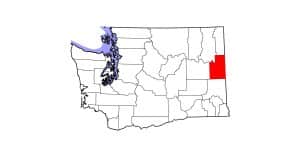Incredible Edibles: Horse Treats
- Topics: Article, Horse Industry News, Other Supplements
I confess. I’m an incurable treat-giver. Despite all those stern warnings from the riding instructors of my youth–that I would teach my horses to bite, and probably lose a finger in the process–I’ve long made a habit of slipping them a little nibble of something special, as a greeting, a consolation, or a congratulations for a job well done. In the pockets of each of my several grungy barn jackets lurk a small and sticky collection of Scotch mints, my horses’ personal favorite–and believe me, they know exactly where they are, and how to best extract them from me. (My chestnut, Toddy, tucks his nose under my elbow and nudges me–or if that doesn’t work, he shoves; Pokey, my gallant little pinto, sweeps into a bow, the one circus trick he knows; and my mare just glares at me because she knows the Boys have gotten their goodies and it’s high time Herself got hers!)
Yes, my horses are spoiled rotten; I cheerfully admit it. I’m fully aware that Scotch mints, while capable of improving their breath to a significant degree, are probably not the most healthful treat I could be distributing. They do have two advantages over more organic offerings, however–they don’t freeze in winter or go moldy in summer. My horses also enjoy frequent treats of a more conventional nature such as carrots and apples, mushy pears, and green seedless grapes. Toddy, who has an adventurous palate, has been known to sample Fancy Fruits, Lifesavers candies, gingersnaps, and on one occasion, a grilled cheese sandwich. I even recall a Quarter Horse with an advanced sense of humor who once reached over his owner’s shoulder and stole her hamburger (fortunately, carnivorous impulses like this are rare!).
The riding instructors of my youth did, of course, have a point, and if any of the horses in my little herd had aggressive impulses or were prone to nipping (as might a young colt or a breeding stallion, for example), I certainly would refrain from hand-feeding them and content myself with placing treats in their feed buckets.
Offering treats by hand isn’t viewed by all as the reprehensible practice it once was; witness, for example, the growing popularity of "clicker training," a method of operant conditioning that focuses specifically on motivating horses with hand-fed treats. Instead of viewing treats as a way of "spoiling" horses, advocates of clicker training maintain that nothing encourages horses to learn and to enjoy the learning process better than a food reward. In clicker training, humans become "vending machines," doling out a morsel of something tasty for every correct response by the horse. Horses quickly learn that merely "mugging" their owners for treats gets them nowhere. The end result, say fans of the method, is mannerly, attentive horses who eagerly perform tasks on command–and almost never tuck their noses under one’s elbow and shove like my unmannerly gelding
Create a free account with TheHorse.com to view this content.
TheHorse.com is home to thousands of free articles about horse health care. In order to access some of our exclusive free content, you must be signed into TheHorse.com.
Start your free account today!
Already have an account?
and continue reading.
Written by:
Karen Briggs
Related Articles
Stay on top of the most recent Horse Health news with












